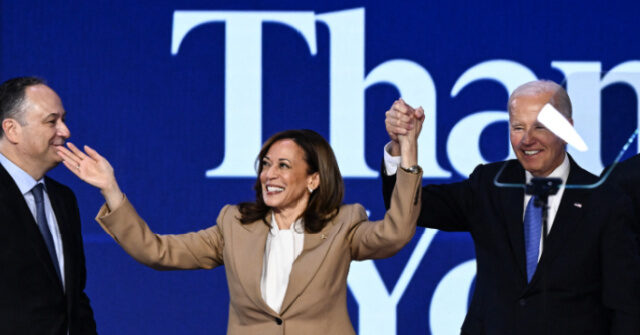In a recent development, President Joe Biden’s comments have placed Vice President Kamala Harris in a precarious position as she navigates her campaign for the presidency. Biden’s remarks have drawn attention to the administration’s policy failures, which are pertinent to Harris’s candidacy. As she seeks to distance herself from the administration’s struggles with crime, inflation, and border security, Harris faces the challenge of promoting policies that align with her campaign while simultaneously validating her record within the Biden-Harris administration. The complexities of the current political climate, including rising costs, international conflicts, immigration issues, and the aftermath of the Afghan withdrawal, further complicate her ability to advocate for change without implicating the administration’s legacy.
In an effort to define her campaign, Harris recently emphasized her vision for leadership centered around “new ideas” and a forward-thinking approach aimed at addressing contemporary challenges. During an interview, she noted that her focus is on the next decade or more and what is necessary to bring the U.S. into the future. However, Biden’s insistence on highlighting Harris’s integral role in the administration’s policies creates a dissonance in her messaging. He affirmed at a press conference that they are “singing from the same song sheet,” emphasizing Harris’s involvement in passing various laws, which could hinder her attempts to establish an independent identity as a candidate.
Moreover, Biden’s remarks about delegating significant responsibilities to Harris during his presidency have also proven to further entangle her in the accomplishments (and failures) of their administration. This has been detrimental, particularly as public perception of the administration’s performance continues to sour. Recent polling indicates that a significant majority of voters believe they are worse off now than they were four years ago, with a startlingly low percentage rating the current economic conditions positively. This public sentiment presents a formidable challenge for Harris, who must contend with dissatisfaction over policies she has been closely linked to.
Reportedly, Biden has expressed concern and disappointment over Harris not adequately mentioning him during her campaign appearances. As the former vice president continues to feel the weight of his approval ratings, he views Harris’s reluctance to fully embrace their shared record as an indication of her distancing tactics, especially problematic given her position as the successor on the Democratic ticket. The dynamic between Biden and Harris is thus characterized by a struggle for narrative control, where both parties seek to maintain a favorable public image while grappling with a challenging political landscape.
As Harris continues her campaign, her advisors are working to articulate her position in relation to Biden’s controversial legacy. Although Harris has broken from Biden on certain policies, much of her strategy revolves around establishing her identity independent of him. A recent speech exemplifies this strategy; Harris did not mention Biden at all while discussing economic issues, a stark departure from earlier speeches where she frequently attributed successes to their collective efforts. This transition reflects an intentional effort to present herself as a candidate in her own right, capable of leading and inspiring change beyond the current administration.
Ultimately, the challenges facing Harris as she campaigns amid Biden’s shadow highlight the difficulty of reconciling a desire for change with the realities of their shared administration. With essential issues like the economy, public perception, and the implications of their joint record weighing heavily on her campaign, Harris must navigate a complicated landscape to successfully position herself as a viable candidate for the presidency. The road ahead requires a delicate balance between acknowledging past associations and emphasizing new, transformative visions for the country’s future while addressing the concerns of an electorate that feels increasingly disillusioned with the current administration.

